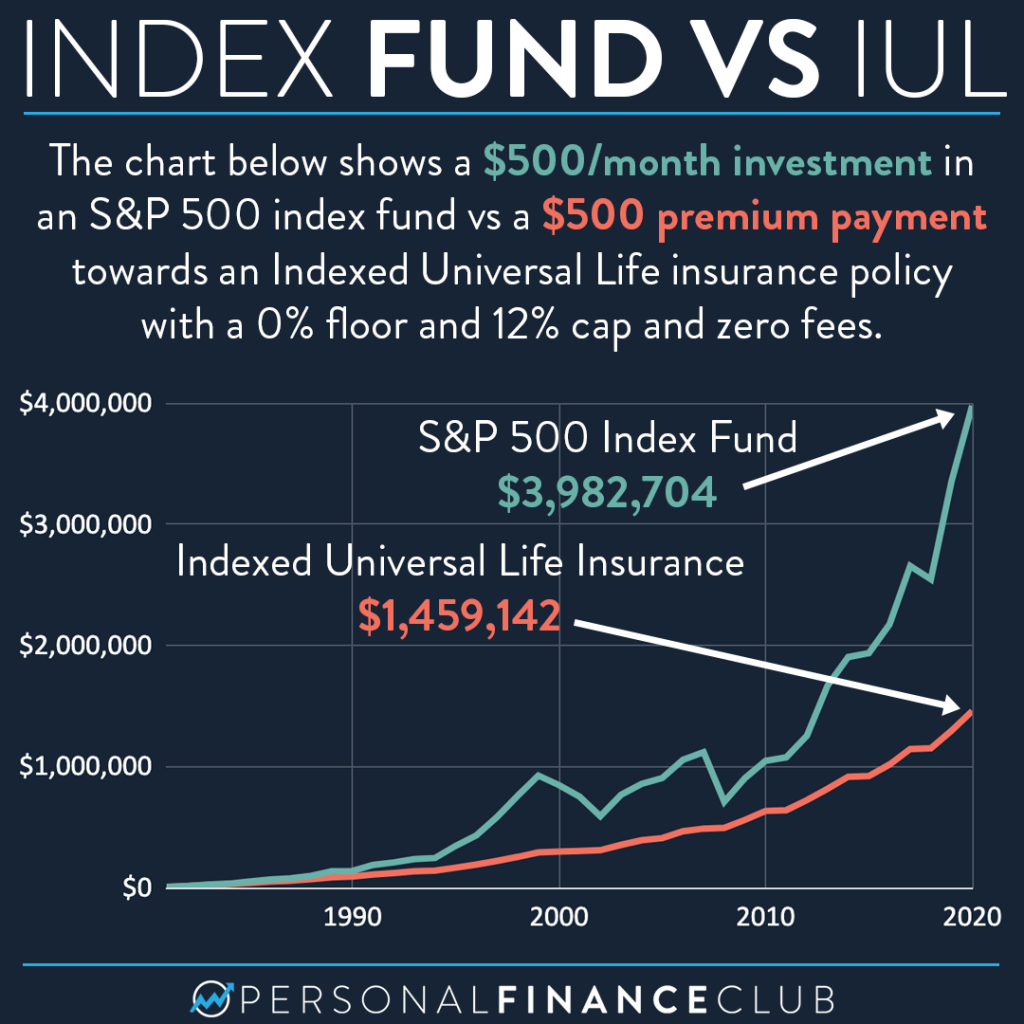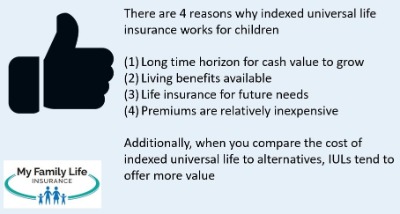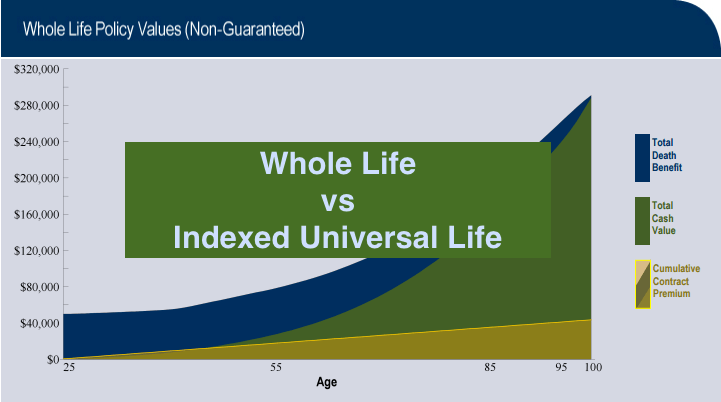All Categories
Featured
Table of Contents
Do they compare the IUL to something like the Vanguard Total Supply Market Fund Admiral Shares with no lots, an expense ratio (EMERGENCY ROOM) of 5 basis factors, a turnover proportion of 4.3%, and a remarkable tax-efficient record of distributions? No, they compare it to some horrible proactively managed fund with an 8% lots, a 2% EMERGENCY ROOM, an 80% turnover ratio, and a horrible record of short-term capital gain circulations.
Shared funds commonly make annual taxable distributions to fund proprietors, also when the worth of their fund has gone down in worth. Shared funds not just call for income reporting (and the resulting yearly taxes) when the mutual fund is rising in worth, yet can also impose revenue taxes in a year when the fund has decreased in value.
That's not how mutual funds function. You can tax-manage the fund, gathering losses and gains in order to minimize taxed circulations to the financiers, yet that isn't in some way mosting likely to change the reported return of the fund. Only Bernie Madoff kinds can do that. IULs stay clear of myriad tax catches. The possession of shared funds may require the common fund owner to pay estimated taxes.

IULs are simple to place so that, at the proprietor's death, the recipient is exempt to either revenue or inheritance tax. The same tax obligation reduction techniques do not function almost also with shared funds. There are many, frequently pricey, tax obligation catches connected with the moment acquiring and marketing of shared fund shares, traps that do not relate to indexed life insurance policy.
Possibilities aren't extremely high that you're mosting likely to undergo the AMT due to your mutual fund circulations if you aren't without them. The remainder of this one is half-truths at finest. While it is real that there is no income tax obligation due to your successors when they acquire the profits of your IUL policy, it is additionally true that there is no earnings tax obligation due to your beneficiaries when they inherit a common fund in a taxable account from you.
Iul With Living Benefits
There are much better ways to stay clear of estate tax concerns than purchasing financial investments with low returns. Mutual funds may cause revenue taxes of Social Safety advantages.

The development within the IUL is tax-deferred and may be taken as free of tax revenue via financings. The policy owner (vs. the shared fund manager) is in control of his or her reportable revenue, hence allowing them to lower or perhaps get rid of the taxes of their Social Safety and security benefits. This set is excellent.
Right here's an additional very little problem. It holds true if you buy a common fund for say $10 per share just before the circulation day, and it disperses a $0.50 distribution, you are after that going to owe tax obligations (most likely 7-10 cents per share) although that you haven't yet had any kind of gains.
Yet ultimately, it's actually about the after-tax return, not just how much you pay in taxes. You are mosting likely to pay more in tax obligations by utilizing a taxable account than if you acquire life insurance policy. But you're likewise possibly going to have even more money after paying those taxes. The record-keeping demands for possessing mutual funds are substantially a lot more complicated.
With an IUL, one's records are maintained by the insurer, copies of annual statements are mailed to the owner, and distributions (if any type of) are amounted to and reported at year end. This one is additionally type of silly. Obviously you need to maintain your tax obligation documents in situation of an audit.
Universal Way Insurance
Barely a factor to acquire life insurance coverage. Mutual funds are commonly component of a decedent's probated estate.
Additionally, they are subject to the delays and expenses of probate. The earnings of the IUL plan, on the other hand, is always a non-probate distribution that passes outside of probate directly to one's named recipients, and is for that reason not subject to one's posthumous financial institutions, undesirable public disclosure, or comparable hold-ups and costs.
We covered this under # 7, yet simply to recap, if you have a taxed shared fund account, you must place it in a revocable trust fund (and even easier, use the Transfer on Fatality classification) to avoid probate. Medicaid incompetency and life time earnings. An IUL can provide their proprietors with a stream of earnings for their entire life time, despite how much time they live.

This is valuable when organizing one's affairs, and converting properties to earnings before a nursing home confinement. Common funds can not be converted in a comparable way, and are often thought about countable Medicaid properties. This is another foolish one supporting that bad individuals (you understand, the ones that require Medicaid, a federal government program for the bad, to pay for their retirement home) need to utilize IUL instead of mutual funds.
Universal Live
And life insurance policy looks terrible when contrasted relatively versus a pension. Second, individuals who have money to purchase IUL above and beyond their pension are going to have to be terrible at handling cash in order to ever get Medicaid to spend for their assisted living home expenses.
Chronic and incurable health problem cyclist. All policies will allow a proprietor's easy accessibility to money from their policy, typically waiving any type of surrender charges when such individuals experience a serious ailment, need at-home treatment, or come to be confined to a nursing home. Mutual funds do not give a similar waiver when contingent deferred sales fees still use to a mutual fund account whose proprietor needs to offer some shares to money the costs of such a remain.
Universal Term Life
Yet you get to pay more for that benefit (motorcyclist) with an insurance plan. What a fantastic deal! Indexed global life insurance policy supplies fatality benefits to the beneficiaries of the IUL owners, and neither the owner neither the recipient can ever lose money as a result of a down market. Common funds give no such assurances or survivor benefit of any kind.
I absolutely don't need one after I reach monetary freedom. Do I want one? On average, a purchaser of life insurance pays for the true price of the life insurance advantage, plus the expenses of the plan, plus the profits of the insurance coverage firm.
Universal Life Insurance Questions
I'm not completely certain why Mr. Morais threw in the entire "you can't lose money" once more below as it was covered rather well in # 1. He simply intended to repeat the ideal selling factor for these things I suppose. Once more, you don't lose small dollars, but you can lose genuine bucks, as well as face serious opportunity cost because of reduced returns.

An indexed universal life insurance coverage policy proprietor might exchange their plan for an entirely different plan without activating income tax obligations. A shared fund proprietor can stagnate funds from one shared fund business to another without selling his shares at the previous (thus setting off a taxed event), and repurchasing brand-new shares at the last, commonly subject to sales costs at both.
While it is true that you can exchange one insurance plan for one more, the factor that individuals do this is that the very first one is such a terrible plan that also after purchasing a brand-new one and experiencing the early, adverse return years, you'll still appear ahead. If they were sold the right plan the first time, they should not have any kind of wish to ever trade it and go via the early, unfavorable return years once more.
Latest Posts
Universal Life Brokers
Single Premium Indexed Universal Life
Universal Life Policy Calculator